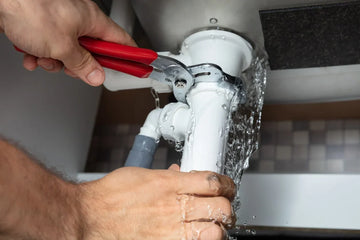Flood detection devices are crucial tools that play an instrumental role in protecting valuable assets and human lives from the devastating impacts of floods. As climate change continues to heighten the frequency and intensity of natural disasters, including flooding, having a reliable flood detection system is now more imperative than ever. In this article, we delve into the workings of these life-saving devices, exploring their efficacy and advancements.
A flood detection device serves to identify potential water-related threats by monitoring specific environmental conditions such as rainfall, water levels, and soil moisture. Once these devices detect thresholds that could signal an impending flood, they provide alerts to take proactive measures. According to the WIPLAT Blog on AI in Water Management, modern flood detection devices are increasingly integrating AI technology for more precise and timely alerts, which boosts their ability to mitigate damage.

Why Flood Detection Matters
Flooding is one of the most common, costly, and deadly natural disasters affecting millions across the globe. Industrial operations, homes, and critical infrastructure are often at risk, reinforcing the importance of deploying systems that ensure rapid and accurate flood detection. For instance, businesses can avoid substantial financial losses associated with water damage by investing in a reliable commercial water leak detector, capable of early flood signals. Essentially, the goal of flood detection systems is to provide advanced warnings that allow for early evacuation, safe shutdown of essential operations, and effective disaster response planning.
Components and Functionality
Flood detection devices typically comprise several components including sensors, data processors, and communication networks. Sensors are installed in strategic locations to monitor various parameters, such as water levels in rivers or rainfall intensity. This data is processed and analyzed to provide real-time alerts to stakeholders, allowing for swift decision-making and action. Data transmission technologies such as LoRaWAN and IoT networks connect these devices to centralized monitoring systems, enabling a quick relay of information regarding flood risks.
Advancements in Flood Detection Technologies
Innovation in flood detection technology has revolutionized how organizations and individuals approach disaster preparedness. AI-integrated systems are at the forefront, enabling predictive analytics that anticipate flooding before it occurs. GPS and satellite data further enhance the ability to predict and respond to potential threats. The Pros and Cons of Smart Leak Detection Systems article highlights how modern technologies underpin effective flood management solutions, ensuring their seamless deployment across different settings.
Advantages for Industry QA
In fields like Industry QA, the implications of flooding can be dire, disrupting manufacturing processes and compromising product quality. The use of flood detection devices in QA processes ensures industrial quality assurance standards are upheld by preventing water-related damage and maintaining operational integrity. When quality is non-negotiable, advanced flood detection apparatus provide a layer of security that industry professionals can rely on for consistent outcomes.
Implementing Flood Detection Systems in Homes
For homeowners, implementing a flood detection device within the household provides peace of mind knowing there's a proactive line of defense against leaks or floods. These systems can be part of broader smart home solutions, capable of being integrated with other devices for seamless home automation. In the BigB Home Protection Guide, the value of robust leak detection mechanisms in safeguarding residential properties is underscored, emphasizing the unique benefits tailored for home resilience.

Frequently Asked Questions
How do flood detection devices work?
They utilize sensors to monitor changes in environmental conditions such as water levels or precipitation, analyzing the information to forecast potential flood risks. Alerts are sent to users for further action.
Can a flood detection system prevent water damage?
While these systems cannot physically prevent flooding, they provide crucial alerts that allow for proactive measures, significantly reducing the extent of water damage by ensuring timely responses.
Are flood detection devices costly?
The cost varies based on the complexity of the system; however, given the potential savings from avoided water damage, their deployment is often a cost-effective investment.






